Media explained by my father. COMM 250 project Spring 2017.
Don't wanna be here? Send us removal request.
Text
Television
Ever since I made Mom get Netflix, my father has been all about it. He’s usually watching anywhere from three to seven shows at once, and will talk to you about all of them. Anything from Orange is the New Black to House of Cards, he’s watched it. He even cares about the Emmy’s, which I can’t even begin to imagine. Knowing how important it is to him, I was pretty excited when I called him for our final interview - television.
Although Dad remembers a time before television, a lot of his earliest memories begin around the time they got a TV. The first shows he remembers are the black & white comedy shows from the mid-50s. “I remember Jackie Gleason, the I Love Lucy show, similar stuff to that.” He thinks they were fine, but it wasn’t about the art with those shows. Dad’s only main consumption of media is artistic. If it doesn’t serve an artistic value, then it isn’t as important to him.
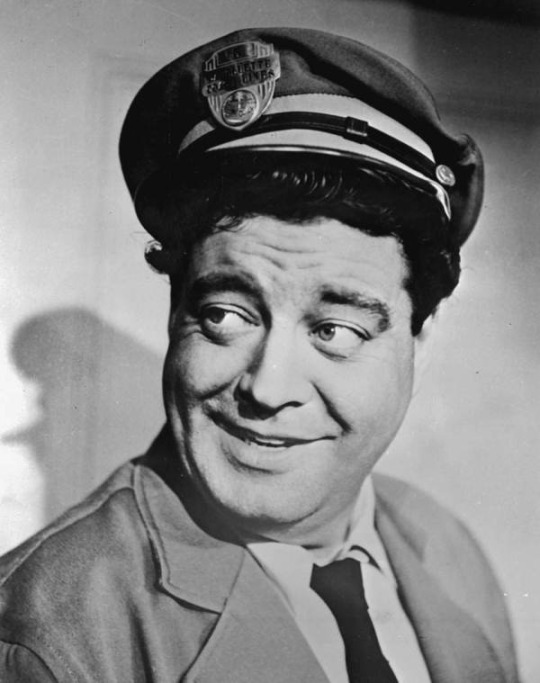
(Jackie Gleason)
As the 50s drew to an end, my father remembers the rise of the cowboys. He and Grandpa used to watch cowboy shows together all the time. To this day, cowboys/westerns are still some of his favorite shows to sit and watch when he’s bored. They don’t hold as much value to them, but he finds them to be pretty entertaining and appreciates what they do. After those went away, color TV started becoming big. When Dad got his first TV, he remembers only a few programs - “Walt Disney’s Wonderful World of Color” and a travel show. While he doesn’t remember the name, he does remember that it played in daytime on Saturday for half an hour.
The living room was usually packed with Mom, Dad, as many of the seven kids that were born, and Grandma and Grandpa Parks. “It was a family thing, we all sat down and watch TV together basically every evening.” With the men in the family, sports were always big, specifically baseball and boxing. Dad would watch boxing with Grandpa Parks and his father every chance he got. He doesn’t know why they did it here, but doesn’t remember grandma or grandpa having a TV, so that might be it.
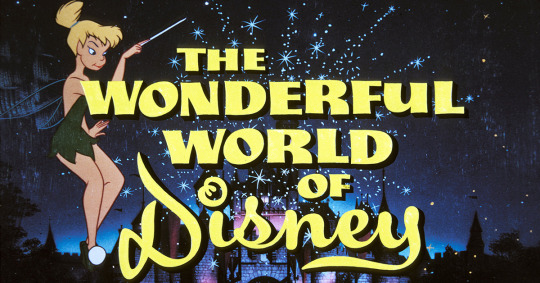
(The Wonderful World of Disney my father was referring to)
When asked how many channels we had, Dad didn’t have what I considered a typical response. Grandpa had an electric router that would control the antenna with a controller. By using the controller, they could get three channels from Detroit and one from Flint. Swartz Creek had two as well, bringing their grand total to six - channels 2, 4, 5, 6, 7, and 12.
Advertising wasn’t important to my dad, but major events were. He remembers watching the Kennedy assassination in eighth grade and parts of the Cuban missile crisis, but he didn’t care nearly as much about that. The Kennedy assassination was “a formative experience”. When he was in the service, he watched the moon landing, and assumes the rest of the family did the same back home.
Now, TV is much different to him, and it’s markedly better. “There are television shows now that are probably better than any show in the 50s or 60s. To tell you the truth, my own opinion is that there are shows on FX now, Fargo, that are art. I can’t think of very many shows that I would consider art back in the day. Maybe something important, like on PBS. I think TV back then was more targeting the average individual with average intelligence. Now, there’s TV for people with good taste and no taste at all. I think today is really cool to me, like televisions. Television has been passing movies now for where the real art is”
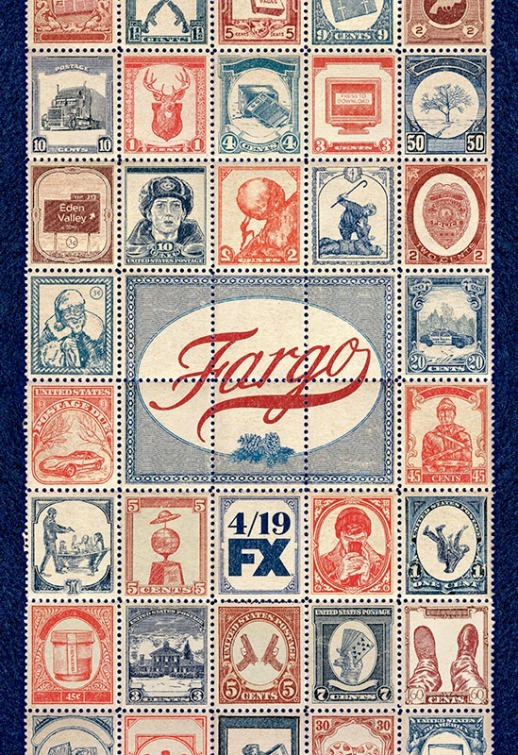
(Fargo)
Dad takes full advantage of new tools for television. Netflix is an essential for his day. However, at first, he didn’t use the DVR or Netflix. “We were slow, me and Mom, getting VCR and stuff like that. I was always slow the party in a lot of new stuff, like microwaves. That’s probably because of lack of money.” Now, however, he uses our DVR constantly. When i called him, he told me that he show to be recorded that night and had just finished watching the show he recorded the previous.
0 notes
Text
Audio
Growing up, my dad and I bonded over a few things - NASCAR, liberal politics, baseball, and music. There was constantly music playing in our house. Mom always referred to it as dad music. “Dad music” was a very distinctive part of my childhood; I can always tell when my father is going to even like a song, just based on what we listened to growing up, so it was exciting to be able to speak to him about his history with audio recordings.
Dad loved records. He still does, in fact. We currently have two or three record players in the house. The Beatles were his favorite, but the first album he got with his own money was Out of our Heads The Rolling Stones. Before then, he had only ever bought 45 rpm singles. He’d get them at the dime store really cheap. Usually, he’d buy singles from complete unknown bands, because they were so much cheaper than all the other music he could buy.
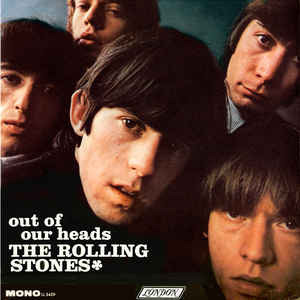
(Out of our Heads by The Rolling Stones)
Dad usually would listen to his music over his sister’s portable record player. Grandma and Grandpa had one in the living room that played 78s, but then his sister got her own. It became their shared thing, because Dad would let them listened to his music with them. “When I was a teenager, I actually strung wires from the record player in my room to speakers in Kathy and Terri’s room that went through the air vents so they could listen to whatever I was playing.”
Growing up in Catholic school, Dad didn’t have much experience with school dances. “We didn’t have in St. Mary’s or anything like that.” However, public high school was much different. Every Friday after school, the school threw sock hops with live bands. They were one of the main ways my dad began to socialize, and the music was pretty good. “As a matter of fact, the band that played most of our sock hops when I first got to high school -- first, they were the Jazzmasters (one word), then they called themselves The Thunderbirds or something like that. When they graduated, Donny Brewer, the drummer of that band who was a senior when I was a freshman, he ended up being the drummer for Grand Funk Railroad, which was nationally well-known. He was probably the most famous guy out of our hometown.”
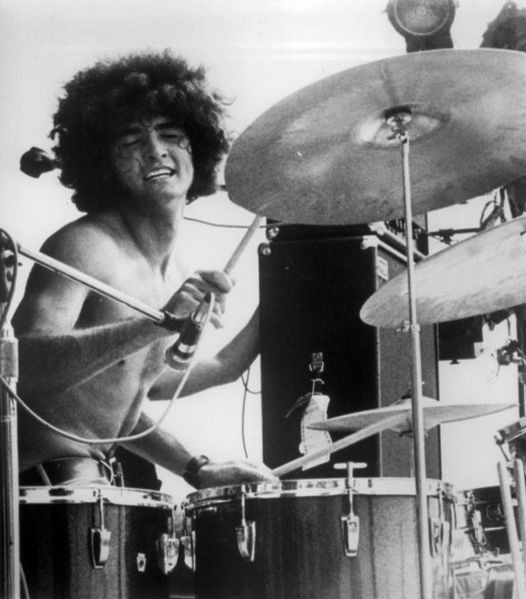
(Don Brewer)
Typically, Dad discovered what eventually became “Dad music” through the radio in his room. Over the summer, he would literally listen to it all day, if he was home and during school, it was every evening. When he was a teenager, he thought the radio was great. “It was AM radio and you’d have Johnny Cash, Roger Miller, and The Beatles on the same radio station. There wasn’t a genre type thing; everything crossed over.” He has an incredibly eclectic music taste, so that explains much of it. When his Pandora is on shuffle, rarely do you hear two similar songs in a row.
He’s never been as much about the top 40 thing. When FM radio came around, he loved it at first. “They started playing deeper tracks. It wasn’t just top 40 anymore, and it eventually got real commercial and went to something different. It wasn’t near as good anymore. Three, four, five years of being really good. It became commercial. More top 40 and genre orientated.”
Advertisements didn’t really bother him much. FM didn’t have nearly as much as AM. He recalls AM radio having at least a small commercial between every song. Once FM became established, however, they started having much more frequent advertisements. After leaving the service and marrying Deb, advertisements were much different. They lived in Flint and could pick up stations from Window, Canada, that he referred to as underground. “There was stuff that was anti-Nixon. There was stuff like ‘smoking dope with Nixon’s daughter’ at the time. I don’t know. I don’t really remember it well.”
Today, Dad uses radio about as much. He’s constantly telling me about his new favorite songs. Most recently, it was Like Ice Cream by Divine Fits, which he found on Pandora. He streams music on Pandora super frequently. The only other audio streaming he takes part in is Sirius XM radio, which he listens to on the TV, usually to Outlaw Country or The Loft, specifically Meg Griffin. “It’s much cooler now.”
youtube
(Divine Fits // Like Ice Cream)
0 notes
Text
Movies
As long as I can remember, my dad’s been watching movies. I would always find him in the living room, staring at the TV, enthralled by the story. However, that might not have always been how it always was with him; we’d never spoken about it. I never knew his childhood experiences with movies - if his dad watched them like he did, if he watched them with Grandma. He’s always been an incredibly happy man, especially with his movies. When I called him to ask about his experiences with movie, he was more excited about this topic than any of the other ones.
The interview began with me asking where he liked to watch his movies. To my surprise, there was a theater inside of his small town, Swartz Creek, MI, outside of Flint, but is no longer there. I asked what it was like and he said, “It was the old type that had the big marquee out front, ya know what I mean? V-shaped. If you were to look at it from underneath, it would like an arrowhead or something. It was a few blocks from where Grandma Sopko lived, and a lot of times my cousins and I would walk there to see movies.”
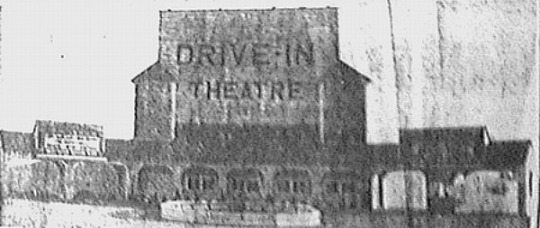
(A drive-in theatre outside of Flint - the closest city. Dad went here a few times. A picture of his hometown movie theatre didn’t exist.)
He used to go to the concession stand all the time. He told me that it used to be much cheaper and you could get popcorn and soda when you went in, which were his favorites. Dad said that he usually watched the matinees when he was younger, but when he got older, evening shows became more of his thing. “I remember when I was junior high age, we would go there on Friday evening and meet all of our friends there to see a movie. It was kinda the big social place to be and how I could hang out with my friends and see them.”
He also frequented the drive-in. Although I was hoping he’d tell me that Grandma parked in the back, they usually were somewhere in the middle. When he was younger, he wanted to be up front. It was closer to the concessions and he could see the movie better. But when he got a little bit older, he just liked to sit wherever he could see - the concessions weren’t as important and he wouldn’t have to be as involved. They wouldn’t really cook or play on the playground, so it was more convenient and courteous to be in the middle.
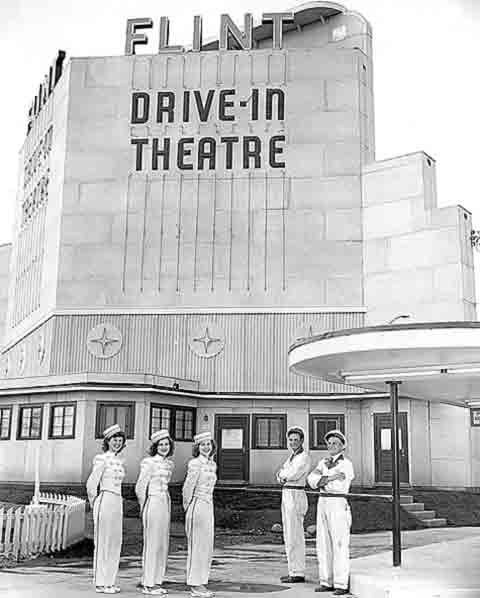
(Flint Drive-In Theatre, which my dad’s family frequented.)
Growing up, Dad really enjoyed his movies. I asked what his favorites were and he said, “I liked old movies. I liked all the old movies. I liked watching the gangster movies with Edward G. Robinson. I got to like Humphrey Bogart. Mostly his movies are some of my favorites.” When I asked him about a genre he liked, I got the expected answer - cowboys. Dad has always had a huge thing for western television and movies, so this was absolutely no shock. He proceeded to go on a tangent that I didn’t even try to interrupt. “I mostly liked cowboy movies. A lot of the movies I saw in the theatre, that showed at our theatre in town, were mostly cowboy movies and Disney movies or something like that. I remember watching The Nutty Professor and Shaggy Dog and all those when we were young. I remember teenagers watching, like, the spaghetti westerns that were popular in the sixties. I watched a lot of those. There was The Shakiest Gun in the West, which was like a western comedy. Cowboys were big in my childhood. 1959, when I was 9, almost all the shows on TV. That was like the height of cowboy shows on TV and, like, 85% or something of the shows on TV were cowboy shows. It’s really hard to think about it now because they’ren ot really on as much. Those cowboys were my favorites growing up, like, as a teenager and stuff. As I got older, I got more sophisticated. I remember every day a channel that came in from Detroit, they’d play movies from six to eight. A lot of TV channels did back then - it was much more common. Ya know, now you got the Turner Classic channels and that’s it. The other channels don’t show the movies from before anymore, like the cable channels.”
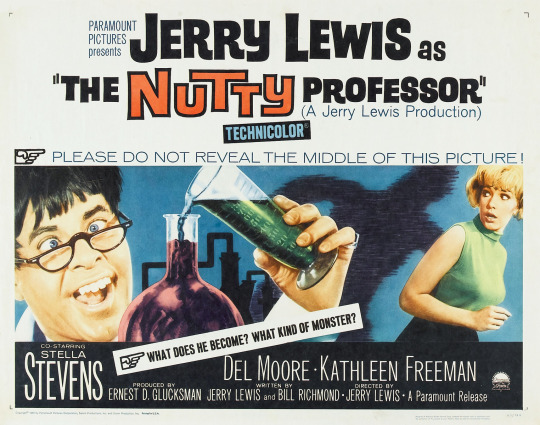
(The Nutty Professor (1963))
Dad was also really influences by movies a lot. He specifically cited The Wizard of Oz as one of the most influential. He proceeded to tell me that as he got older, he would drive to the movies and himself and watch really good ones, like Graduate. After trying to think of more movies he saw, he lost his train of thought. “I can’t think of any of it right now, but you asked me what was influential?”
“Yeah.”
“I always thought young Marlon Btando was cool, and he probably influenced my idea of cool. I always thought James Dean was the epitome of cool. He was actually in the era before me, but I really liked him.”
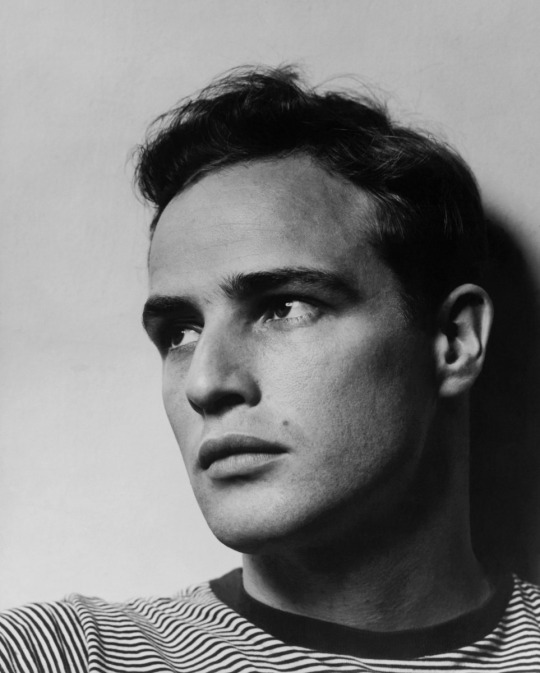
(Marlon Brando)
Dad grew up Catholic, so I figured there would be a few movies he was forbidden from, but that turned out to not be the case. Although the Catholic church did have a list of movies they forbade, my grandparents didn’t care. “We got a list of movies we weren’t supposed to see, but my parents never kept from watching anything I wanted to go see. The Catholic church tried but didn’t succeed.”
Being able to see anything he wanted, helped socially. He would go see movies that offended the Catholics on dates or with friends. He said that the movies were the place to go in high school. You took your girlfriend to the movies. You took your cousins to the movies. “That was the kinda relationship you had with your friends.”
Now, Dad still enjoys his movies but on a different platform: Netflix. I asked how he liked it, and he said he liked it a lot. “I watched a real good one this weekend,” he said. “It was called Spotlight, which is a couple of years old - 2015 or ‘16. It was about the scandal in Boston where all the Catholic priests were molesting children, like 90 priests. It was a really well done movie and very informative. Your mother said it’s fake news. She doesn’t believe it. She doesn’t believe the Catholic priests molest kids. You should watch it sometime and tell me what you think.”
Well, Dad. I just might take you up on that.
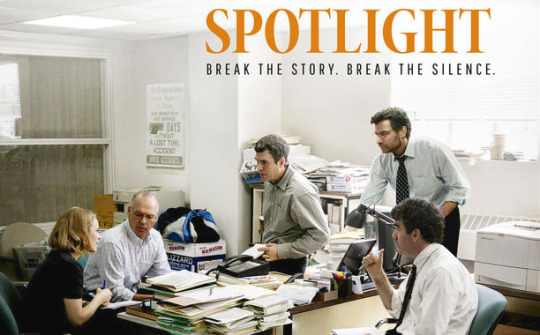
(Spotlight (2015))
0 notes
Text
Advertising
Growing up, I noticed that my dad has always been, as the kids say, “woke”. Meaning that he’s always aware and noticing what the “man” is doing. As a young adult, he definitely would have been considered a hippy. He was fighting against the man and living his best, happiest life. Naturally, I was incredibly interested to speak to him about advertisement because he always seems to have an interesting perspective on things of that nature.
I started by asking my father what he saw as a child as far as billboards or wall posters, but that didn’t really help him much. He stated that he didn’t really remember any billboards, but he remembered a few wall posters, but mostly just hippy posters. He said his community didn’t have any painted wall advertisements either, because there weren’t many buildings that were large enough to advertise. In the next town over, however, there were some, but he couldn’t remember many specifics. When I asked what he remembered, he said “Oh. Not much really. They just basically were the ones for the auto-manufacturers and stuff like that. That was a big part of our economy -- the auto industry. I don’t remember much beside that. Feed stores, yeah. They had stuff advertising for the feed store. Do you know what that is? Where you buy your seed for your animals?”
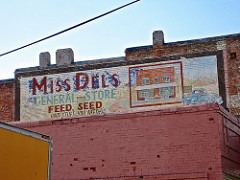
(A wall advertisement to a feed store, similar to what my dad may have seen.)
My father explained that he did read catalogs though. They would get the Sears catalog and another one called Stegal, but that was just mail order and without storefronts, but Sears was the main one they used, because it could be mail-order or storefront. My dad doesn’t seem like the type to really shop through catalogs, so I asked what he liked to look at and he began to almost cackle.
“That’s...Let’s not. The girls in their bras. I remember look at the sport stuff too, y’know. Read Williams was a famous baseball player when I was a kid and he was like the main guy to advertise for Sears. I remember seeing him in there, advertising his sporting good stuff -- fighting equipment and stuff like. Honestly, mainly, I just looked at the girls though.”
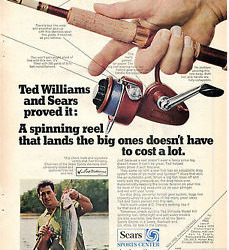
(A Ted Williams Sears ad, obviously my father’s favorite part of the catalog.)
My dad seemed to be pretty unfamiliar with posters, however. He didn’t have any in his room, other than a few pictures of baseball players. When I asked if he was familiar with any propaganda posters, he stated that he was a little old for that, but he could remember a few. “We had the Uncle Sam ones and the army stuff and most of that was World War II kinda stuff, but the main ones I remember were the ones wanting you to get in the army or military, because we were fighting Vietnam, y’know?”
He did, however, remember the posters against Vietnam as well. As a self-proclaimed hippy, my dad thought those against the cause were pretty notable as well.
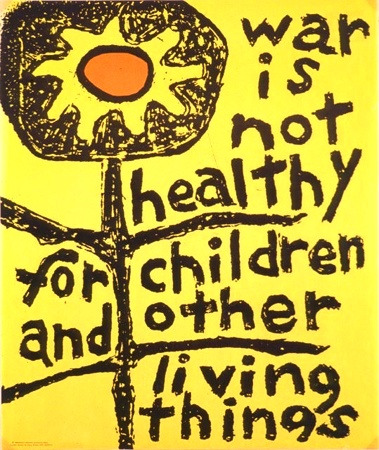
(An anti-war poster.)
Blatant advertisement is a different story. Dad said he’s noticed airborne advertisement, but mainly while he still lives in Texas. When the golf tournaments were in town, there would be blimps and “they’d have their broadcast and stuff like that.” He specifically cited the Goodwill blimps and how they would advertise themselves, but not a specific product. He also said that he’s seen little planes pulling trailers all the time. He can’t remember any specifics of their advertisements though.
When I asked my dad about the changes in advertisement over the years, he began to get flustered trying to remember. In regards to newspaper and magazines, he says there’s more of it. “You used to buy a magazine and you’d read a whole article and there might be a few advertisements before the next article, but now it seems like they’re fifty-percent more advertising. If you look at our Entertainment Weekly, for instance, you know it’s almost all advertising. There’s just more of it I think.”
When asked about radio and television ads, he couldn’t think of anything to say and asked me what I thought, but before I could articulate anything, he cut me off and started talking about catchphrases, like Maxwell House Coffee’s “good to the last drop” thing. He explained that he thinks it’s always been subliminal, and looking back he sees subliminal sex stuff in certain commercials but can’t be specific because he doesn’t remember all that well.
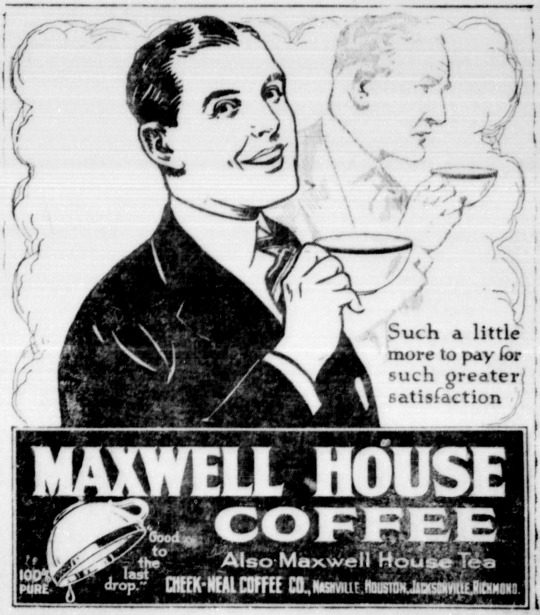
(Maxwell House Coffee)
Now, my dad gets annoyed by advertisements. “You know like on the facebook or something, there’s stuff that I wanna see advertised and am glad to see advertised, but there’s other stuff I could care less about.” He’s mainly annoyed with its quantity, stating that there’s too much about why you should buy stuff. He tries to ignore it and explains that he can see a commercial thirty times before he understands it or realizes if something funny is in it. So now, for him, there’s more subliminal advertising that goes in his brain and he’s not really paying attention to.
I asked my dad if he ever felt like he couldn’t get away from advertising. He said, “Oh yeah. You know, when I moved to the big city, to Dallas from where I came from, it’s just uh...all the billboards and constant noise. I was inundated. I just had culture shock. It was really hard for me; mentally, it was impossible for me to function. I had a few nervous breakdowns throughout the year for the first few years, but eventually I learned to hide from it. I guess that’s why I’m sort of a recluse now, but I guess that says more about me than it does about any of it.”
Yes it does, Dad, but I don’t mind.
0 notes
Text
Print
In my house, reading was always a huge deal. I was taught to read as young as possible, and it was my favorite hobby. Any free time I had was designated to reading me stories and learning more about them. My mother always stressed how important it was to read every single day and, although less adamant, my dad (Patrick) always held a similar mentality, so I was actually pretty excited to ask him about his history and experiences with reading and print.
First, I asked him about the news papers and magazines he had growing up. My dad, who grew up in the 1950s around Flint, Michigan, explained that he had the Detroit Free Press newspaper, but eventually the Flint Journal took its place. The Free Press was a morning paper and the Journal was an evening paper, but they only briefly had them at the same time, so there was usually just one paper each day.
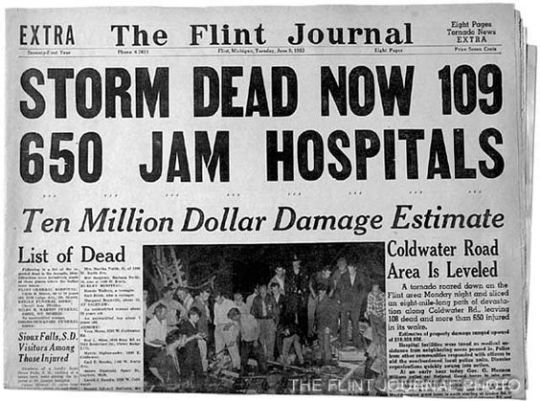
(The Flint Journal from 1953.)
Dad explained that a paper boy would bring them their newspaper each day, and it would be a race for whomever found it first. There were no rules stating that Mom or Dad got to read it first, so whoever was the first one there would take it to their room until they were done with whatever part they wanted to read it. Dad was always partial to the sports sections and would take those out and spend his time learning every word and statistic on the page, so he could talk about it with his friends at school the next day.
Now, my father still reads the paper every single day, but focuses on every part instead of just the sports. I asked him how they’ve really changed over time, and he became very flustered and confused while trying to articulate what he wanted to tell me. “Hm...I don’t know. I don’t...I can’t tell you that really, no. I don’t think...They’re a lot different. They’re aimed like, now they’re aimed like they’re trying to appeal to a wider range of readerships. One thing I’ve noticed is it’s slanted nowadays. It’s like the social media and stuff. The...What paper you read might be a right-wing paper like the Poplar Bluff paper, or an actual true newspaper, which I believe most main newspapers are really factual. I don’t believe the Washington Post or New York Times is fake news. Do you know what I’m saying?”
Yes, Dad. I definitely know what you’re saying.

(The Poplar Bluff paper that my dad referred to as “a right-wing paper”)
Magazines, on the other hand, Patrick explains that he had a different experience. He doesn’t remember Grandma or Grandpa every buying magazines, but he always bought and subscribed to sports magazines, so he had to get them himself from the store. He had magazines such as Dell Sports, Sport, and Sports Illustrated, but also more fun magazines like Boys Life and Mad Magazine.
Although there were no rules about the newspapers he read, there were controversial magazines that he couldn’t see, like Playboy. That didn’t stop him though. “I couldn’t read Playboy magazine knowingly. If I read them, they never knew that. I couldn’t really buy them because you have to be 18 or something, but I’d find them.”
Now, although he doesn’t get many Playboys anymore, he does still read magazines pretty frequently. He’s still subscribed to Sports Illustrated, but also holds subscriptions to Entertainment Weekly and USA Sports Weekly. Whenever they come in the mail, I can tell he gets excited to read about sports or figure out what TV shows he’s going to watch this week.
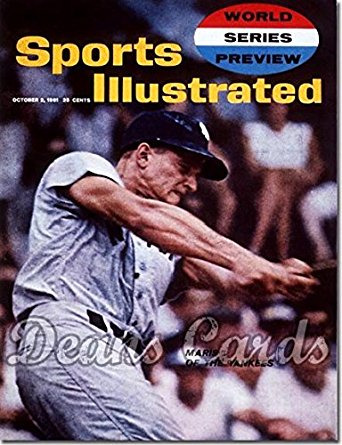
(The October 2, 1961 Sports Illustrated, which Dad specifically remembered)
When my older sister Maggie was in middle school, she had a friend stay over for a week while her parents were out of town. The friend was completely shocked by our lifestyle; she seemed to be quite literally outraged. When she called her parents, she told them about how weird all of Maggie’s family was. “They’re all...READING. All they do is read! Even the baby is reading! They’re so weird.”
Obviously, reading is a big part of my family’s life. I was excited to see how my dad has been influenced by reading, because I knew the effect it had on me. I was, however, a little surprised about his lack of experience. He told me that he did read growing up, but couldn’t site many specific authors that had an effect on him. After giving him a few minutes to think, though, he had it. “I don’t know... Lord of the Flies was one..Babbitt, Great New World!” He couldn’t explain really how Great New World or Babbitt affected him, he could tell me about Lord of the Flies. “Lord of the Flies was just good stories...Do you know what it’s about?” I didn’t. “It’s about a bunch of boys who are marooned on an island and how they develop a society. It’s just a fantasy, but it’s really a statement about sociology and such. How you have to have a power structure or whatever, a government of sorts.”
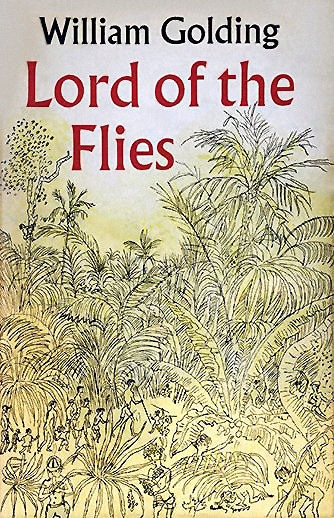
(The cover of Lord of the Flies, which was my dad’s favorite story growing up.)
Hearing my dad get so excited describing a story was a really surreal moment. It was amazing to me how excited he could get explaining something relatively simple. We talked about the government and communism for a while, as we Sopko men do, but then went on.
He said there weren’t any restrictions on his books. “I don’t think anyone would censor what I read.” He said he got books the same way I did. He had Scholastic book orders at school, which always made him really excited. His excitement didn’t stop there, though, because when he around ten, his mother went back to school. While she was in college, she would take him and his two best friends to the library in Flint on Saturdays while she studied.

(The Flint Public Library, which Dad visited the last time he was in Michigan)
As long as I can remember, my dad has loved the Internet. He is always on his computer looking up baseball stats or reading political articles on Facebook. He always remarks about how impressive it is and how he can’t even imagine life without it now. Our main form of communication is Facebook Messenger now, and he goes out of his way to state how much he loves it. I asked how technology, print, magazines, and news outlets compare to the past and he just laughed. “Yeah it’s pretty awesome.” He stopped to laugh again. “You have everything at hand. You know, you can, you know find out everything, you know? It’s a vast improvement. You don’t have to go to the library or look through cards to find anything. It’s just all right there.”
0 notes